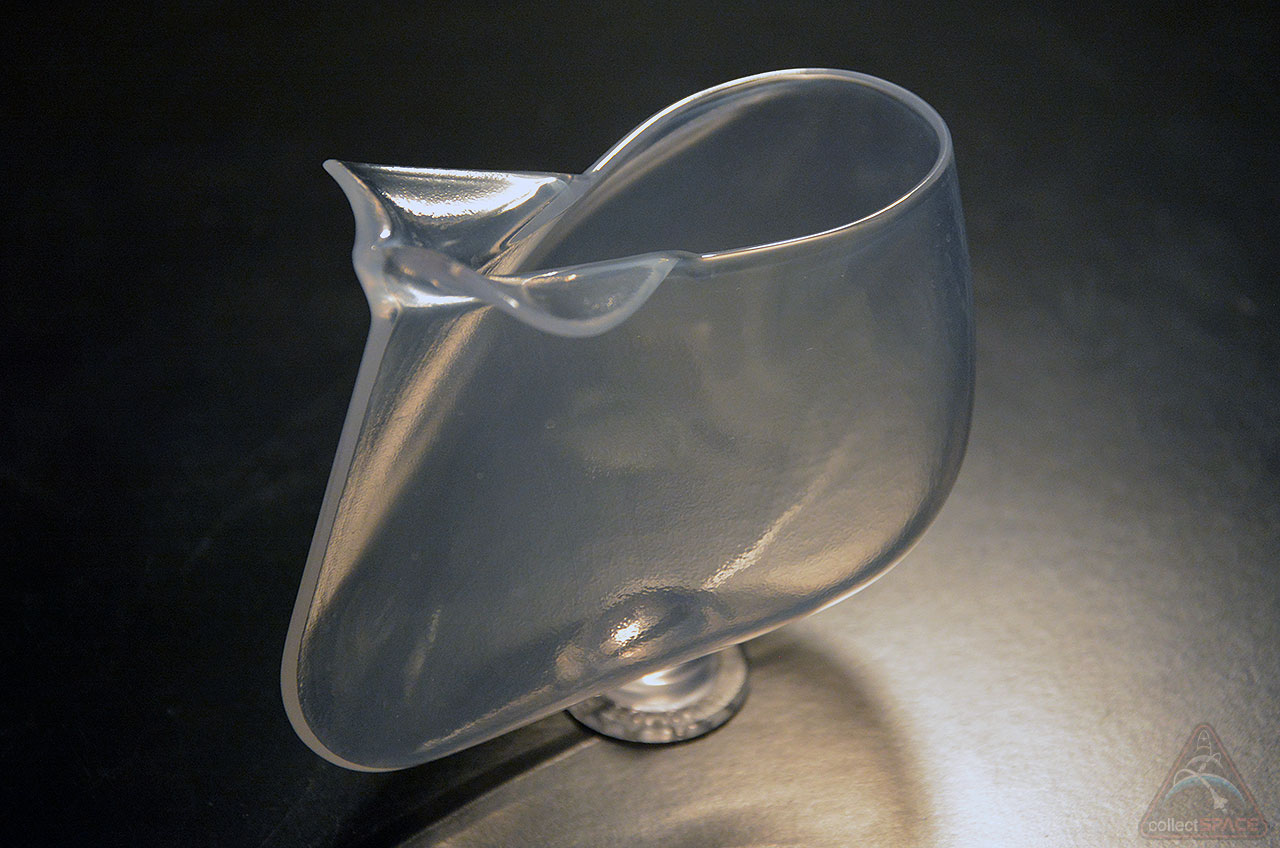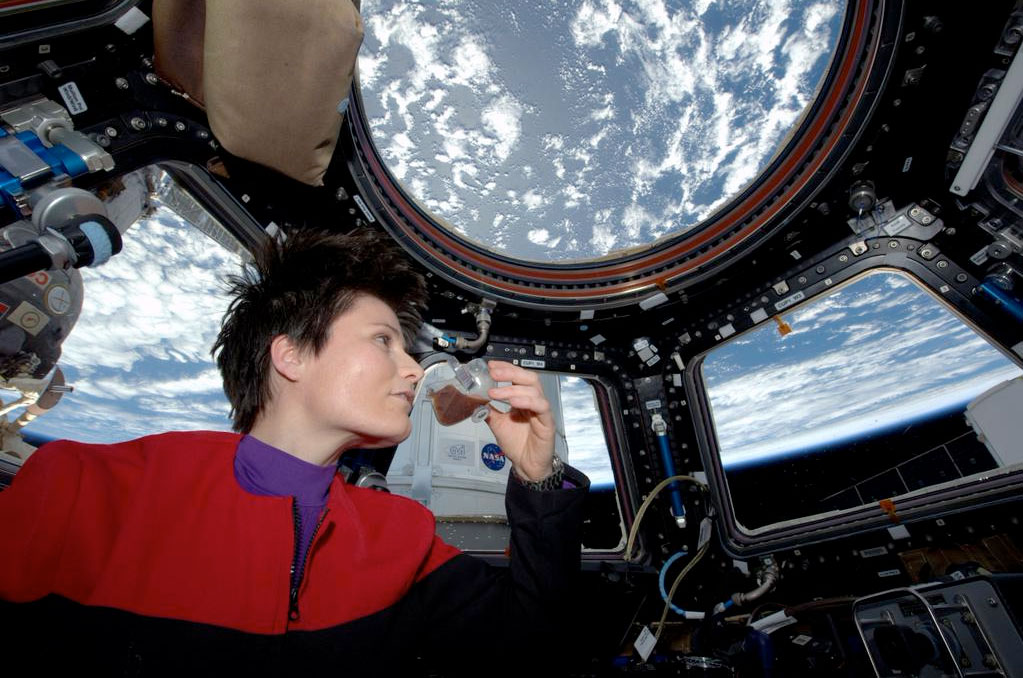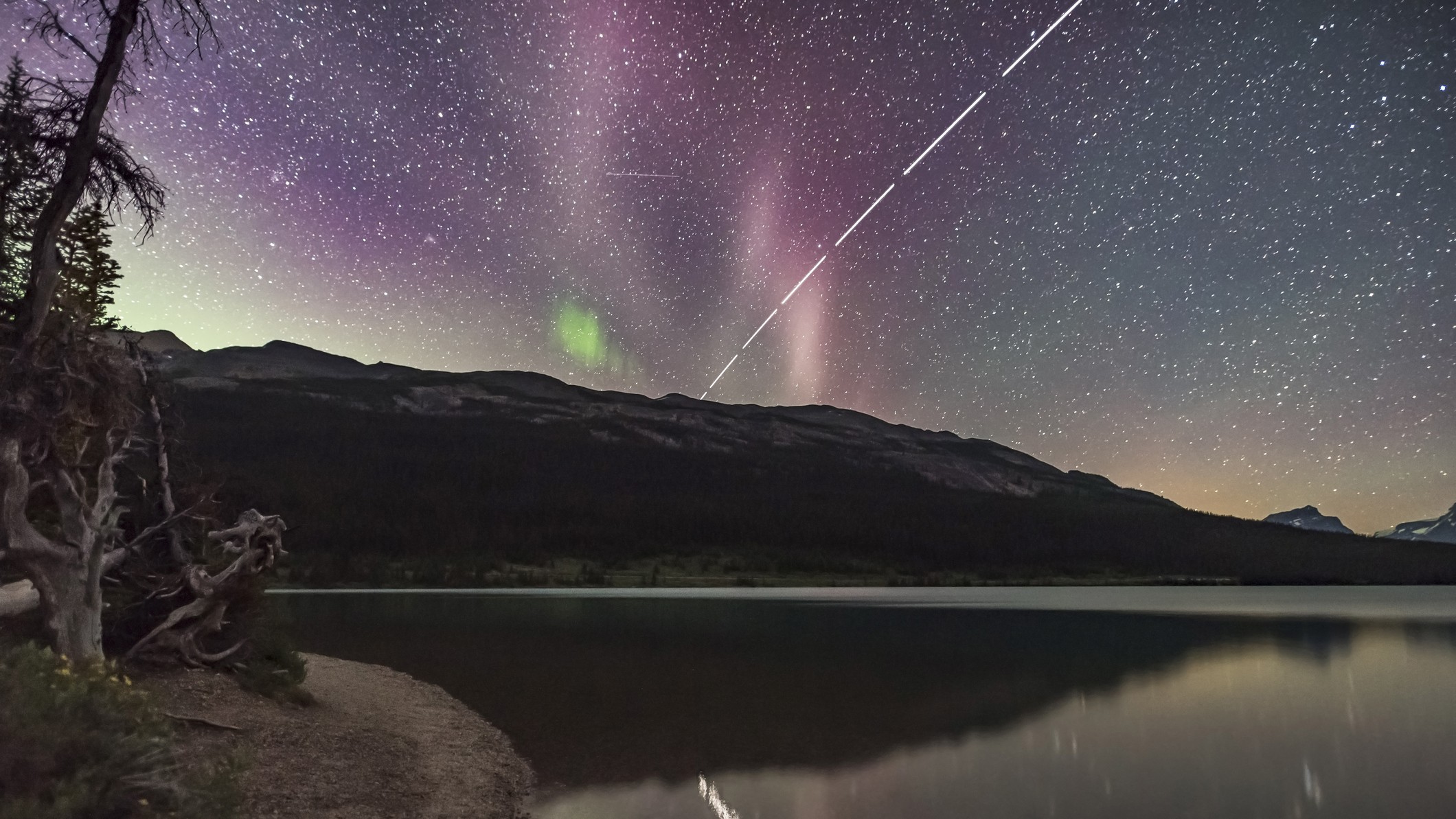Company Crowdfunds Space Coffee Cups for Barista-nauts

The company that put the "cup" in the first space cup of coffee now wants to put one in your hands.
IRPI, the makers of the specially-designed "Space Cups" now being used on the International Space Station, have launched a crowdfunding campaign to commercially make the capillary-flow containers. The Oregon-based R&D firm is seeking at least $50,000 to give everyone the chance to drink like an astronaut.
"There are currently six of these cups on Earth," remarked Mark Weislogel, lead for the "Capillary Effects of Drinking in the Microgravity Environment" study. "The other six are in space." [Video: How the Zero-G Space Coffee Cup Works]
Want one?
Fluids act very weird in space
IRPI's research focuses on spacecraft fluid systems, "like space plumbing," Weislogel said. So when they heard that an Italian company was sending an espresso machine to the space station for an Italian astronaut and her crewmates to use, they knew they had to get involved.
"We knew that that drink is heavily dominated by gravity on Earth," Weislogel said. "There's CO2 bubbles that form and rise that forms a crema, aromatics waft up — all that stuff is driven by gravity."
So IRPI went to work on developing a transparent cup that could be used to reveal all of the complexities involved in making fluids do what you want in space.
Breaking space news, the latest updates on rocket launches, skywatching events and more!
"This was a sideline activity that we thought we could not pass up," Weislogel said.
The Space Cup employs the principles of capillary flow to pump or wick the espresso up its wall. Based on an earlier collaboration between Weislogel and NASA astronaut Don Pettit, who was looking for a way to sip, rather than suck through a straw, his drinks in space, the Space Cup offers a reusable device that makes space a bit more like home.
European Space Agency astronaut Samantha Cristoforetti became the first person to use one of IRPI's Space Cups in orbit after she and NASA astronaut Scott Kelly installed the ISSpresso zero-g coffee machine on May 3.
"Fresh espresso in the new Zero-G cup!" she announced on Twitter.
Space Cup swag
Cristoforetti's cup, along with the other five now aboard the space station, were produced by IRPI using a 3D printer. As it turns out, the cost of printing a single cup is pretty high; the company is asking for a $1,500 pledge (or more) for one of just a dozen 3D-printed full-size cups they are offering through their Kickstarter campaign.
But they can offer the same cup design, optimized for use in space and on Earth, for much less by making them out of glass.
A single glass Space Cup is available for a pledge of just $35.
"Yes, the real deal, in glass with a handle," IRPI noted on its campaign webpage, "and refined base to accommodate use in both zero-g and 1-g for earth-bound folks."
Other perks available, either separately or in combination with the cups, include the Capillary Beverage or "CapBev" mission patch ($5) and miniature 3D-printed cup replicas ($12).
"A scaled mini-cup with a handle that fits nicely on your keychain! You'll love it," IRPI promised.
The company is also offering a tour of its Portland facility and drop-tower demonstrations for those supporting at the $1,000 level. The drop tower, which creates brief moments of microgravity, was how IRPI initially tested the cups.
"Commission your cup the right way, in zero-g," stated the firm.
The "Space Coffee Cup" Kickstarter campaign began May 5 and runs through June 14 at: www.kickstarter.com/projects/spaceware/space-coffee-cup/
Click through to collectSPACE to watch a video about the Space Coffee Cup campaign.
Follow collectSPACE.com on Facebook and on Twitter at @collectSPACE. Copyright 2015 collectSPACE.com. All rights reserved.

Robert Pearlman is a space historian, journalist and the founder and editor of collectSPACE.com, a daily news publication and community devoted to space history with a particular focus on how and where space exploration intersects with pop culture. Pearlman is also a contributing writer for Space.com and co-author of "Space Stations: The Art, Science, and Reality of Working in Space” published by Smithsonian Books in 2018.
In 2009, he was inducted into the U.S. Space Camp Hall of Fame in Huntsville, Alabama. In 2021, he was honored by the American Astronautical Society with the Ordway Award for Sustained Excellence in Spaceflight History. In 2023, the National Space Club Florida Committee recognized Pearlman with the Kolcum News and Communications Award for excellence in telling the space story along the Space Coast and throughout the world.


